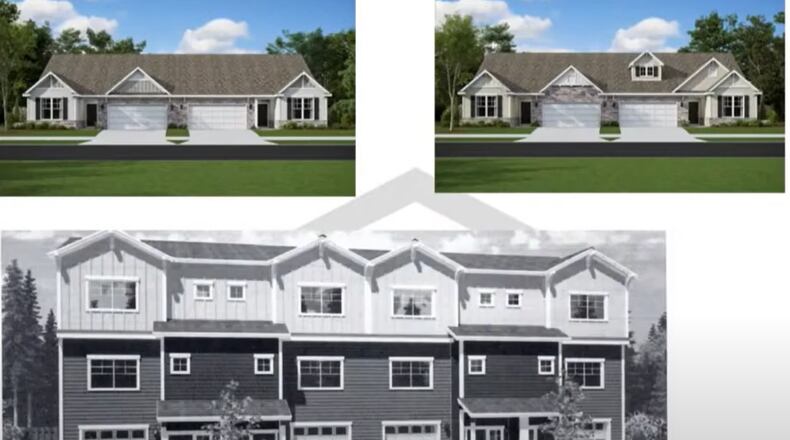Several other residents were in favor of the project and spoke at the meeting.
Oberer Homes, who owns the land and is developing the project, can submit a proposal under the current zoning, which would allow for up to 143 single-family homes. George Oberer Jr., the CEO of Oberer Homes, said the company still plans to move forward on the project and construction should start in early spring.
Here are five things to know about the development and how it unfolded.
1. How the project started
Oberer Homes, a semi-custom home builder, bought the land for this project in November 2020, according to Greene County property records. The parcel totals 53 acres and was originally split between the village of Yellow Springs and Miami Twp. The land was not developed at the time of the purchase and included acres of trees in a rural setting. Village council members indicated the village was working with Oberer about having more smaller homes in the development as early as last July.
2. Village takes action
The Yellow Springs village council voted unanimously to annex the 34 acres of Miami Twp. land that were part of the project into the village in July 2021. The resolution took effect a month later. Housing availability has become a problem in Yellow Springs as the housing stock has aged and become more expensive in recent years.
3. Plan changes; affordable housing possible
Oberer had initially said the zoning and split parcels would allow them to only build 113 homes, but later revised that number upwards after the parcel was annexed. Oberer worked with the village to include more duplexes, townhomes, green space and a donated playground. The final zoning plan that council voted down Monday had a total of 140 homes, beginning at about $200,000. The breakdown was 64 single-family homes, 52 duplexes and 24 townhomes, with 1.75 acres of land to be donated to the village and later developed into affordable housing. The affordable housing project would have been separate from this development.
4. Some residents opposed the whole time
Some village residents spoke out against the project even before the annexation took place. Residents cited concerns about additional traffic, the look of new homes, the environment, water quality and how expensive the homes would be, as well as concerns about the look of the development fitting into the rest of the village. Multiple village residents said at Monday’s meeting they remembered playing near a dump on the property.
“It’s extremely offensive to me when you try to sweep my environmental concerns under the rug,” said Max Crome, a Yellow Springs native and architect who works on Dave Chappelle’s projects in the village. “There was a dump there, guys. Let’s just accept that fact.”
5. Discussion about affordable housing
However, villagers also supported the planned rezoning to allow smaller homes in the village. Some villagers said they supported more affordable housing in the village, which is one of the village’s goals. A group made up of village council, staff and members of the community worked on the plan beginning in November 2020. Villagers in favor of the rezoning said they believed the plan that was rejected was better than the alternative.
“I have concerns about the development, of course, but I believe that the PUD will result in housing that better matches our needs than a whole plat of single-family homes,” said Connie Collett in a letter to council.
About the Author

